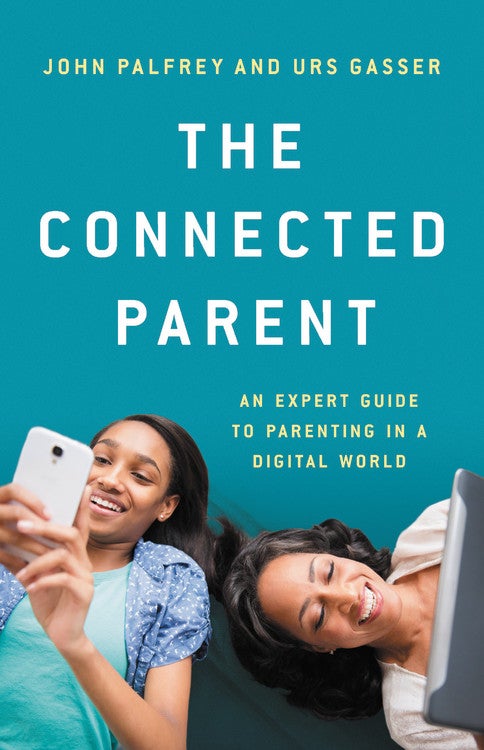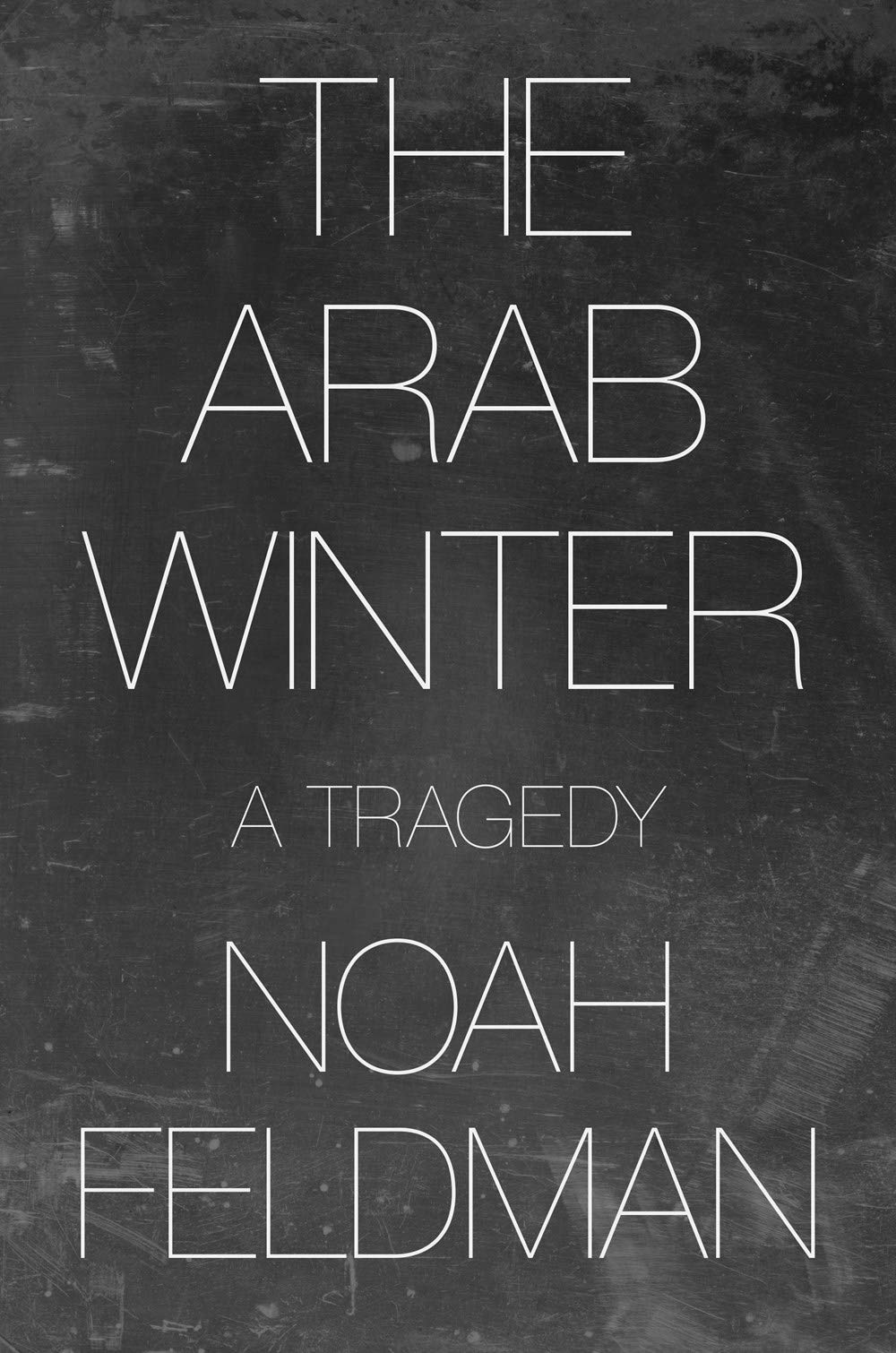In the extraordinary year of 2020, Harvard Law scholars continued to do what they always have: write and publish.
This fall, the Harvard Law School Library hosted a series of book talks by HLS authors, with topics ranging from presidential authority to parenting in a digital world. The HLS events, sponsored by the library since 2014, were held virtually this year because of the coronavirus pandemic. As part of this ongoing series, faculty and student authors from various disciplines shared their research and discussed their recently published works with the Harvard Law community.
Here are some books to add to your reading list over the holiday break.

The Connected Parent: An Expert Guide to Parenting in a Digital World
John Palfrey ’01 and Urs Gasser LL.M. ’03
Building on the research from their previous book, “Born Digital,” HLS Visiting Professor John Palfrey ’01 and Professor of Practice Urs Gasser LL.M. ’03, executive director of the Berkman Klein Center for Internet & Society at Harvard University, offer parents advice on how to navigate a world in which their children are immersed in technology like no generation before.
In their book, “The Connected Parent: An Expert Guide to Parenting in a Digital World,” the authors propose a philosophy of “connected parenting,” whereby parents understand and stay abreast of technology and embrace the positive aspects of digital culture while helping children avoid its risks. They cover topics such as how much time to spend online and how technology affects children’s social life and ability to learn. By connecting with their kids in their online and offline lives and continuously working to maintain a good balance of both, parents can meet the challenges of a new world, they write.
Watch a discussion featuring the authors along with HLS Lecturer on Law and Special Director of Online Education Leah Plunkett ’06, author of “Sharenthood,” and moderated by Jonathan Zittrain ’01, the George Bemis Professor of International Law at HLS.
After Trump: Reconstructing the Presidency
Jack Goldsmith and Bob Bauer
Arguing that President Donald J. Trump has significantly departed from institutional norms established by U.S. presidents going back to George Washington, Harvard Law School Professor Jack Goldsmith offers in his new book more than 50 proposals to reform the nation’s highest office. Co-written with Bob Bauer, who served as White House counsel for Barack Obama ’91, “After Trump: Reconstructing the Presidency” is a comprehensive analysis of the Trump presidency and systemic deficiencies in the executive branch that the authors believe Trump’s tenure has exposed. The book focuses on three areas: conflicts of interest between the president’s public duties and his personal interests; the president’s relationship with the Justice Department; and what the authors see as excessive delegations from Congress to the president, including war powers and emergency powers.
Additional Coverage
- Harvard Law Bulletin, “Reforming the Presidency”
- Lawfare Blog, “Why We Wrote ‘After Trump’”
Watch a Dec. 2 discussion with the authors and former federal judge J. Michael Luttig, moderated by Ilya Shapiro, director of the Cato Institute’s Robert A. Levy Center for Constitutional Studies.

The Arab Winter: A Tragedy
Noah Feldman
As the 2010s came to a close, CNN presented a roundup of some of the news stories that defined the decade. The article cited about 40 events, including international ones like the failed effort to remove Venezuelan President Nicolas Maduro from office, a terrorist attack at a university in Kenya, and a Thai soccer team’s rescue from a cave. It did not mention the Arab Spring.
That omission reinforces the contention of Harvard Law School Professor Noah Feldman that the multinational protest movement against repressive governments in the Arab world that took place primarily during 2011 has today been relegated to “implicit nonexistence” because of its failure to meet most of its goals.
In “The Arab Winter: A Tragedy,” Feldman writes: “People whose political lives had been determined and shaped from the outside tried politics for themselves, and for a time succeeded. That this did not lead to constitutional democracy or even to a more decent life for most of those affected is not a reason to believe that the effort was meaningless.”
Additional Coverage
- Harvard Law Bulletin, “A Movement that Mattered”
- C-SPAN (video), “The Arab Winter” Harvard Book Store event
- Washington Post, “For the Middle East, the Arab Spring was a rare chance to control its own fate”
Too Much Information: Understanding What You Don’t Want to Know
Cass R. Sunstein ’78
During his time in the Office of Information and Regulatory Affairs in the Obama administration, Cass Sunstein ’78 worked on a regulation requiring a variety of establishments, including movie theaters, to disclose the calories of the food they sell. He thought people would appreciate the information—until a friend told him that he was ruining popcorn. It showed that for some people, more information is not always better. In his book “Too Much Information: Understanding What You Don’t Want to Know,” Sunstein explores when government should require disclosure and when it shouldn’t (and also when people should disclose information to the government), based on a standard of whether it would significantly improve people’s lives. The concept of a right to know information is less useful, he asserts, than how people think they will feel if they end up knowing.
The Daughters of Yalta
Catherine Grace Katz ’22
As a financial analyst at BlackRock a few years ago, Catherine Grace Katz ’22 found she sometimes needed a break from modeling Excel spreadsheets. That’s when she’d take a few minutes to wander down to Chartwell Booksellers, a store specializing in books by and about Winston Churchill, located in the lobby of her midtown Manhattan office building.
Katz had studied and written about Churchill’s early years for her undergraduate and master’s theses. Over the course of her coffee breaks, she got to know the shop’s owner, who in turn introduced her to members of the International Churchill Society. “That’s how I learned the family had opened the papers of Churchill’s middle daughter, Sarah,” Katz said during a recent Zoom call from her parents’ home in Chicago. “They were looking for someone to write an article about this new archival collection, which is one of the last of the Churchill family papers to be opened.” She jumped on the assignment.
What Katz discovered would become “The Daughters of Yalta: The Churchills, Roosevelts, and Harrimans: A Story of Love and War,” an intensely researched, vividly depicted nonfiction account of a pivot point in history written from the perspectives of three young women—Sarah Churchill, Anna Roosevelt and Kathleen Harriman (daughter of Averell Harriman, U.S. ambassador to the Soviet Union).
Human Rights in a Time of Populism: Challenges and Responses
Gerald L. Neuman ’80, editor
The electoral successes of right-wing populists since 2016 have unsettled world politics. The spread of populism poses dangers for human rights within each country, and also threatens the international system for protecting human rights. The new volume “Human Rights in a Time of Populism: Challenges and Responses” examines causes, consequences, and responses to populism in a global context from a human rights perspective. It combines legal analysis with insights from political science, international relations, and political philosophy. Authors make practical recommendations on how the human rights challenges caused by populism should be confronted. This book, with its global scope, international human rights framing, and inclusion of leading experts, will be of great interest to human rights lawyers, political scientists, international relations scholars, actors in the human rights system, and general readers concerned by recent developments.
Fault Lines in the Constitution: The Graphic Novel
Cynthia Levinson and Sanford Levinson; Illustrated by Ally Shwed
In 1787, after 116 days of heated debates and bitter arguments, the United States Constitution was created. This imperfect document set forth America’s guiding principles, but it would also introduce some of today’s most contentious political issues—from gerrymandering, to the Electoral College, to presidential impeachment.
With colorful art, compelling discourse, and true stories from America’s past and present, “Fault Lines in the Constitution: The Graphic Novel” sheds light on how today’s political struggles have their origins in the decisions of our Founding Fathers. Constitutional law scholar and HLS Visiting Professor Sanford Levinson, children’s book author Cynthia Levinson, and artist Ally Shwed deftly illustrate how contemporary problems arose from this founding document — and then they offer possible solutions.
Additional Coverage
- Harvard Gazette, “Giving the Constitution a grade of C”
Law and Leviathan: Redeeming the Administrative State
Cass R. Sunstein ’78 and Adrian Vermeule ’93
In their book “Law and Leviathan: Redeeming the Administrative State,” Harvard Law School Professors Cass Sunstein ’78, the Robert Walmsley University Professor, and Adrian Vermeule ’93, the Ralph S. Tyler Jr. Professor of Constitutional Law, seek to address critics of the administrative state who charge that it allows agencies to exercise powers that should be left to the executive and judicial branches. While acknowledging that some agency practices raise constitutional questions, the authors write that “American administrative law has its own internal morality, a reflection of the internal morality of law.” That internal morality, they argue, is responsive to the concerns of skeptics, pointing to checks and limits that shape and give legitimacy to the administrative state. Ultimately, democracy and freedom are facilitated—not threatened—by the modern administrative state, they conclude.
Additional Reading
- The New York Times (Opinion), “The Very Structure of Modern Government is Under Legal Assault”
Liberal Legality: A Unified Theory of Our Law
Lewis D. Sargentich
In his book “Liberal Legality: A Unified Theory of Our Law,” Harvard Law School Professor Lewis D. Sargentich shows how two different kinds of legal argument — rule-based reasoning and reasoning based on principles and policies — share a surprising kinship and serve the same aspiration. He starts with the study of the rule of law in life, a condition of law that serves liberty — here called liberal legality. In pursuit of liberal legality, courts work to uphold people’s legal entitlements and to confer evenhanded legal justice. Judges try to achieve the control of reason in law, which is manifest in law’s coherence, and to avoid forms of arbitrariness, such as personal moral judgment. Sargentich offers a unified theory of the diverse ways of doing law, and shows that they all arise from the same root, which is a commitment to liberal legality.
